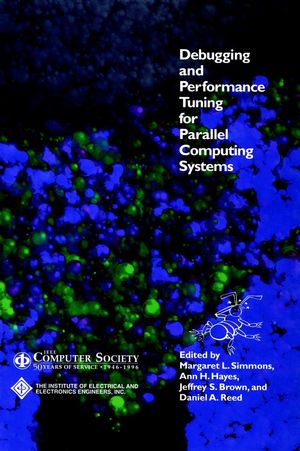Debugging and Performance Tuning for Parallel Computing SystemsISBN: 978-0-8186-7412-9
Hardcover
447 pages
August 1996, Wiley-IEEE Computer Society Press
 |
||||||
For several years, it has been economically and technically
feasible to build parallel systems that scale from tens to hundreds
of processors. By necessity tools embody knowledge of the execution
environment, identifying performance bottlenecks or logical program
errors in terms of application code constructs and their
interaction with the execution environment. Experience comes with
time, as tool developers understand the common programming idioms,
the interactions of application code and the underlying hardware
and software, and the user interfaces best suited for relating
these interactions in intuitive ways. Simply put developing good
tools takes time, experience, and substantial effort.
This book contains papers and working group summaries from discussions on software tools for parallel computer systems that explore the current situation, outline research issues, and technology transition remedies. Developers of both debugging and performance analysis tools and application developers and vendors discuss the technical and sociological problems facing the field. The goal of this book is to maximize the return from shared development so that the reader can learn from others' needs and frustrations in building and using tools on parallel systems. It covers three major research themes: tools for task and data parallel languages, techniques for real-time adaptive system control, and optimization of heterogeneous metacomputing applications.
This book contains papers and working group summaries from discussions on software tools for parallel computer systems that explore the current situation, outline research issues, and technology transition remedies. Developers of both debugging and performance analysis tools and application developers and vendors discuss the technical and sociological problems facing the field. The goal of this book is to maximize the return from shared development so that the reader can learn from others' needs and frustrations in building and using tools on parallel systems. It covers three major research themes: tools for task and data parallel languages, techniques for real-time adaptive system control, and optimization of heterogeneous metacomputing applications.



